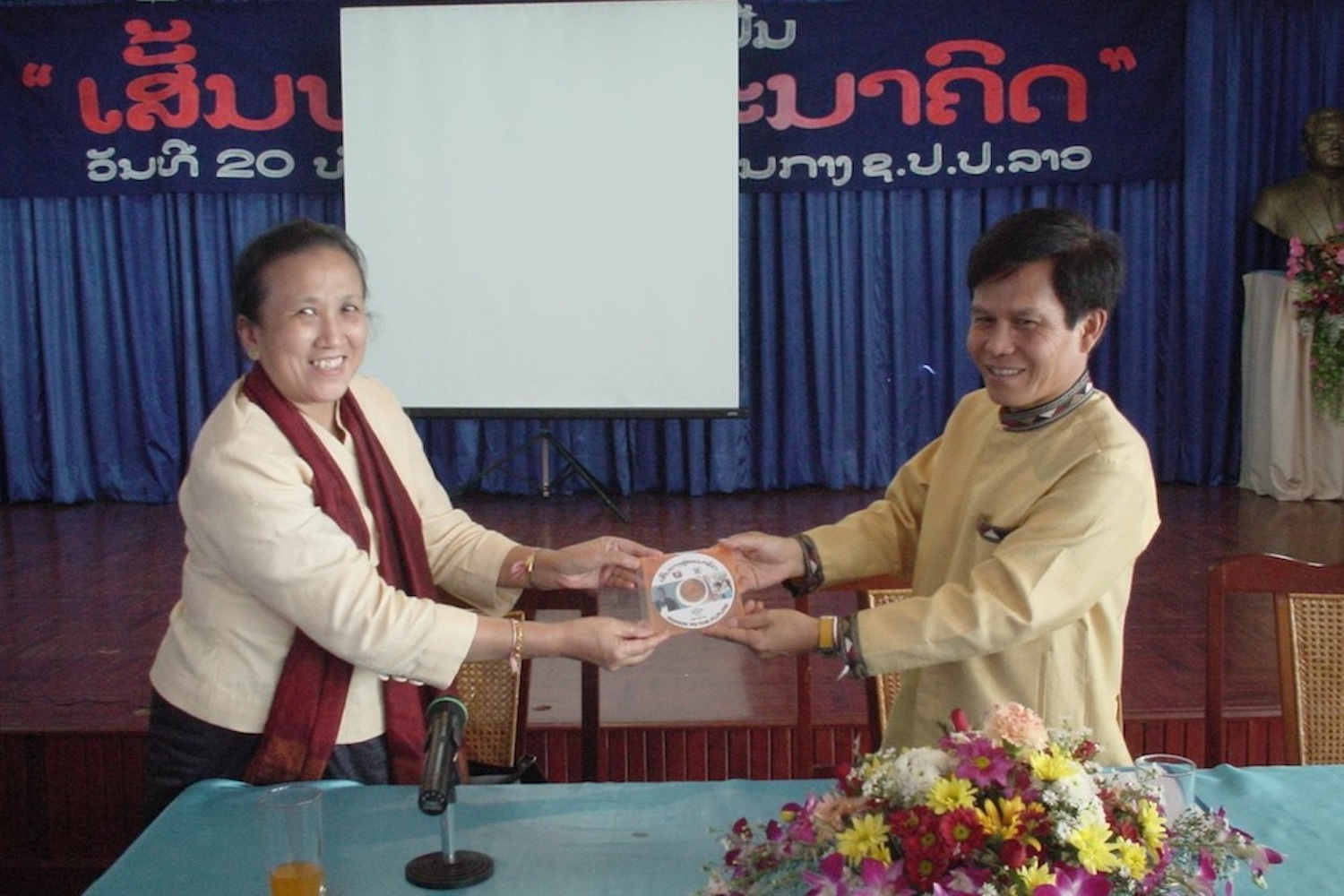Pressenza: 21 May 2015
‘I stand before you humble and a little sad that it is I who is here to receive this Special Award for Human Rights’, said Shui Meng Ng, wife of Sombath Somphone upon accepting the 2015 Gwangju Special Award for Human Rights in Gwangju, South Korea last Monday on the 18th May. ‘It would have been such a happy occasion, and such an honour, if Sombath could be here to receive this Award himself. Unfortunately, circumstances do not allow it.’
The Gwangju Prize for Human Rights was established in 2000 to promote the spirit of the May 18 Democratic Uprising. The May 18 Democratic Uprising took place in the city of Gwangju, South Korea from 18-27 May 1980. At the time, Gwangju citizens took up arms after local students, who had been demonstrating peacefully against the Chun Doo-hwan government, were fired upon, killed, and beaten. Estimates suggest up to 606 people died in just a few days. It is deemed one of the turning points in the South Korean democracy movement. Every year, May 18 is commemorated with ceremonies and festivities, including the Gwangju Asia Forum and the Gwangju Prize for Human Rights.
The Prize is awarded to individuals or organizations who have made significant contributions to the advancement of human rights, unity, solidarity and world peace. In 2011 the Gwangju Special Award for Human Rights was added, which is awarded every two years to one individual or organization who works for the improvement of human rights in the fields of journalism, culture, literature or others.
Sombath Somphone came from a farming family in Khammouane Province, Laos. He initially worked on demonstrating low-cost methods of improving farm production and food security. Later, he pioneered the use of participatory rural appraisal techniques in Laos. In 1996, he was given permission by the Ministry of Education to establish the Participatory Development Training Center (PADETC) to provide training for youth, and local government officials in community-based development.
Sombath met his wife, Shui Meng Ng, when they were both students in Hawaii. Shui Meng is Singaporean and has worked with UNICEF in Laos, China and Timor-Leste. In June 2012 Sombath retired from his position as Director of PADETC, intending to spend more time with his family, meditate and write.
However, Sombath disappeared on 15th December 2012, right in front of a police post. His abduction was recorded by a police surveillance camera (CCTV). He seems to have been heading home in his jeep, when, as the CCTV footage shows, he was stopped by the police and taken away. The Lao government authorities have denied that they are involved and claim that the police is still investigating what happened to him. Even though many countries have offered to help in its analysis, the original CCTV footage has not been released.
The 2015 Gwangju Prize for Human Rights Committee explained that they hoped the Special Award would contribute to raise awareness about Sombath’s disappearance and help bring him back to his family as soon as possible.
‘If Sombath knew his work had gained the recognition of the Gwangju Prize for Human Rights Committee, he would be very happy and very honored’, Shui Meng Ng said upon receiving the Special Award on his behalf, ‘Sombath has always admired the Gwangju people’s struggle for democracy. He wanted to share (..) the May 18 experience with the young Lao people he worked with. His message to the young people then was that every society has people who are willing to work and sacrifice for their dreams for a better future for themselves and their children.’
‘This Special Award by the Gwangju Prize for Human Rights Committee is therefore very much appreciated. It gives me some comfort that the Gwangju Prize for Human Rights Committee has recognized Sombath’s work and that he is not forgotten.’, Shui Meng Ng closed, ‘In humbly accepting this Special Award on behalf of Sombath Somphone, I want to humbly request that you, all the good people of Gwangju, please help join the petition to urge the Lao government to find Sombath quickly and return him safely to me and my family.’
If you want to support the campaign to return Sombath too, go to http://sombath.org.

